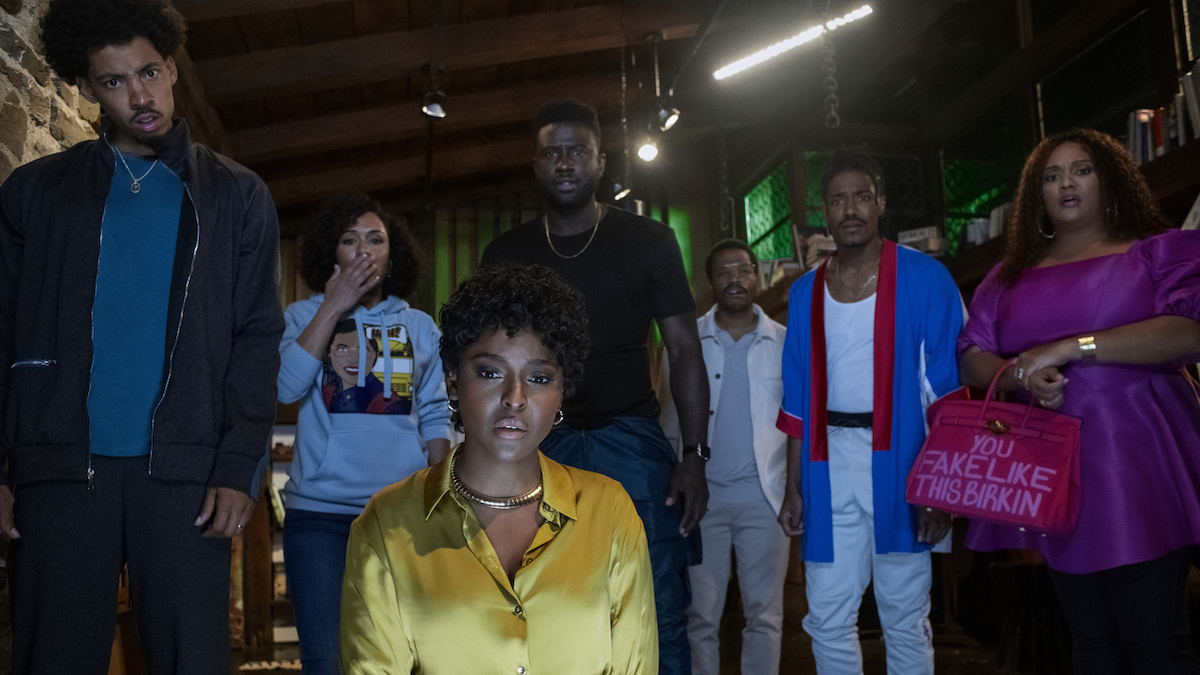Why ‘The Blackening’ Is the Horror Hit of the Summer

“We can’t all die first,” the tagline of The Blackening proclaims, in a tongue-in-cheek reference to the tired trope of Black characters being the first to die in horror films. Sure enough, The Blackening is a frenzied scramble for survival—and a side-splitting commentary on race in horror films.
The Blackening takes place in a secluded cabin in the woods, where a group of friends has gathered for a Juneteenth celebration. However, their reunion is quickly disrupted by a killer who forces them to play a sadistic board game to see who will live and who will die. Soon, the friends are grabbing weapons and running through the woods, trying to outwit their tormentor. Pop culture references and meta-humor abound, along with fantastic gags and lots of tense, bloody fun.
But The Blackening isn’t just a rousing horror comedy—it’s a work of cutting commentary on racism and violence. It’s also an instant hit, earning glowing reviews. Robert Butler III of Geeks of Color calls The Blackening “a zany dismantling of slasher tropes, past and present;” Robert Daniels of Mashable calls the film “a subtle, thought-provoking, yet endlessly rapturous take on the horror genre;” and Carla Renata of The Curvy Film Critic says it’s “a welcomed giggle in the midst of the madness we call life.”
Audiences who have seen the film are offering similar praise on social media.
The Blackening was inspired by a short by Dewayne Perkins (who also co-wrote The Blackening‘s screenplay and stars in the movie), in which a group of characters has to decide who’s the Blackest among them. Indeed, The Blackening is filled with references and tributes to Black culture, and in an interview with NPR, director Tim Story says that he found it healing to highlight those references, instead of cutting them as he’s had to do in previous projects.
“There’s something amazing when you’re in a room and you have an idea and you can say it, and everybody, first of all, understands where it’s coming from. You don’t have to explain to somebody why it’s important. That’s a space that just brings with it humor and just kind of magic. And that’s what I think The Blackening is. It’s – if you have a good time laughing, it’s that we’re – if you know the culture, you’re going to be starting from where we are. And now we’re taking it a little bit further. In my opinion, when it comes to representing Black culture, that’s where the magic happens.”
The Blackening, starring Yvonne Orji, Jay Pharoah, Antoinette Robertson, Dewayne Perkins, Grace Byers, Jermaine Fowler, Melvin Gregg, X Mayo, and Sinqua Walls, is now playing in theaters everywhere.
(featured image: Lionsgate)
Have a tip we should know? tips@themarysue.com